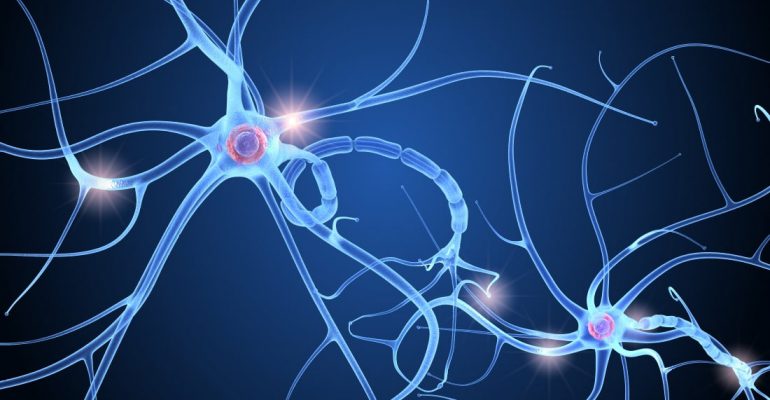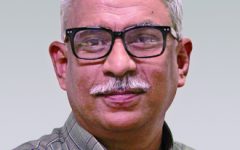In conversation with Guest Lecturer – Dr Ishtapran Sahoo, Scientist II, Thermo Fisher Scientific, Bangalore
June 27, 2019 2021-12-23 5:21In conversation with Guest Lecturer – Dr Ishtapran Sahoo, Scientist II, Thermo Fisher Scientific, Bangalore

In conversation with Guest Lecturer – Dr Ishtapran Sahoo, Scientist II, Thermo Fisher Scientific, Bangalore
- How was your experience as a guest lecturer at Biocon Academy?
It was indeed a great experience to interact with bright minds at Biocon Academy. I was welcomed warmly by Prof. Ramgopal and others. The students were curious and enthusiastic about my session. I was also excited and delighted to share my study with them. It was an interactive session where students quizzed me on various interesting topics.
- How do you think biotechnology has shaped your career in last 12 years?
Biotechnology has certainly been a life-changing experience in my career path. My journey from completing B.Tech in Biotechnology in 2008, with no laboratory experience to successfully completing PhD from Nanyang Technological University, Singapore has been transformational. I have always treated all opportunities and experience of my life as a positive path of growth which has thoroughly shaped my career. My doctoral experience has taught me how to deal time management, enhanced my analytical as well as problem solving skills and helped me cope failures. It has also taught me life skills like building patience, being a good mentor and to ask for help without any hesitation.
- You have immense knowledge in Molecular Cell Biology and Neuroscience. How well do you think these two branches have evolved over the time?
With revolutionary advancement in Molecular Cell Biology, particularly in gene editing tools such as Crispr-Cas9 technology, we are still far from elucidating many of the neuro-degenerative diseases. Given the complexity of the pathological conditions, multi-dimensional triggers, lack of appropriate model system, and overlapping symptoms, neuroscientists are always on the edge of their research studies.
- What are your thoughts on the Biocon Academy Programs? How do you feel students are benefiting?
I think the programs of Biocon Academy is adding immense value to the students as well as the Biotech sector. The programs are serving its purpose and are in the right direction, to stop the talent pool from shrinking in the industry landscape. It is an intense course that enables candidates to get an industry opportunity easily. I feel it can do more towards shaping the curriculum at engineering colleges and other bioscience colleges by including more courses and hands-on training that are relevant for the industry. It would shape the careers of the students graduating from Biocon Academy.
- Can you give a brief about your work on Drosophila to study complex metabolic pathway of human body?
My work on Drosophila has been largely in the context of degenerating neurons in their central nervous system. I worked on Drosophila’s “Blue cheese” protein, responsible for maintaining motor neuron integrity. It acts as an adapter protein in the vesicular transport of biomolecules in the neurons. It maintains neuronal integrity through modulating levels of a bioactive lipid-ceramide via recycling sphingolipid intermediates through a process called autophagy-implicated to be perturbed in many neurodegenerative conditions. It was amazing to see the genetic similarities that Drosophila shares with human, and offer a much simpler model system to dissect basic mechanisms for pathway study and drug target discovery.
- What were the challenges you faced while demonstrating cell signalling pathway experiments on Drosophila?
Drosophila offered a simpler model system but could not help address the degeneracy problem that exists in the complex organisms, where more than one proteins are formed to compensate the absence of other protein called as compensatory effect. Therefore, we use elucidating pathways using simpler models that has been helpful but their extrapolation to human system still remains a challenge for us.
- Is it also possible to culture ants in a controlled and regulated manner like we do for Drosophila?
Yes, it is possible to culture ants and it also serves as an excellent model system in areas of chemical ecology, communication systems, decision-making systems, collective intelligence, self-organization and complexity. Not only fruit flies and ants but also honey bees are used by researchers to study social behavior considering the above biological and neurological criteria.
- How do you think the field of antibody generation will help the biopharma industry in serving science and patients?
I think that the basic function of antibody lies in their ability to bind to specific proteins and aid in their detection, either in research labs or in diagnostic centers. Good quality antibody holds promising role as diagnostic reagents, and neurodegenerative biomarkers in aiding early detection of cancers and other diseases.
Also, given its specific interaction ability, targeting specific tissues with drug molecules conjugates such as Antibody-drug conjugates (ADC) are alternative to classical chemotherapy strategy and remain as an active area for development.
- How is research and development shaping a new era in Biotechnology sector?
The R & D sector holds a lot of opportunities for precision and personalized medicines. It will increase affordability for whole genome sequencing, developing accurate diagnostic kits, microbiome approach to drug target development, and developing environmental friendly microbes that can metabolize oil spills, plastic and other surface pollutants on water bodies.
- What is the kind of talent you believe Thermo Fisher Scientific looks for?
Thermo Fisher believes in 4-i value, which stands for Innovation, Intensity, Involvement and Integrity. Therefore, an ideal candidate should be a combination of all of these values. .
- One advice for the students seeking career in Research and Development?
I always advice my students to be curious and ready to learn. It is very important to learn from our own mistakes and also the team of people we work with. It is also important to keep ourselves open to both soaking in and sharing knowledge.
Profile:
Dr Ishtapran Sahoo is currently working as Scientist II in Molecular Biology at Thermo Fisher Scientific, Bangalore. He has completed his PhD from School of Biological Sciences, Nanyang Technological University, Singapore. He has 5 years of industry and academic experience in molecular cell biology and neuroscience, he specializes Cell biology, Molecular biology, Genetics and Neurobiology.

Dr Ishtapran Sahoo, Scientist II, Thermo Fisher Scientific, Bangalore.







